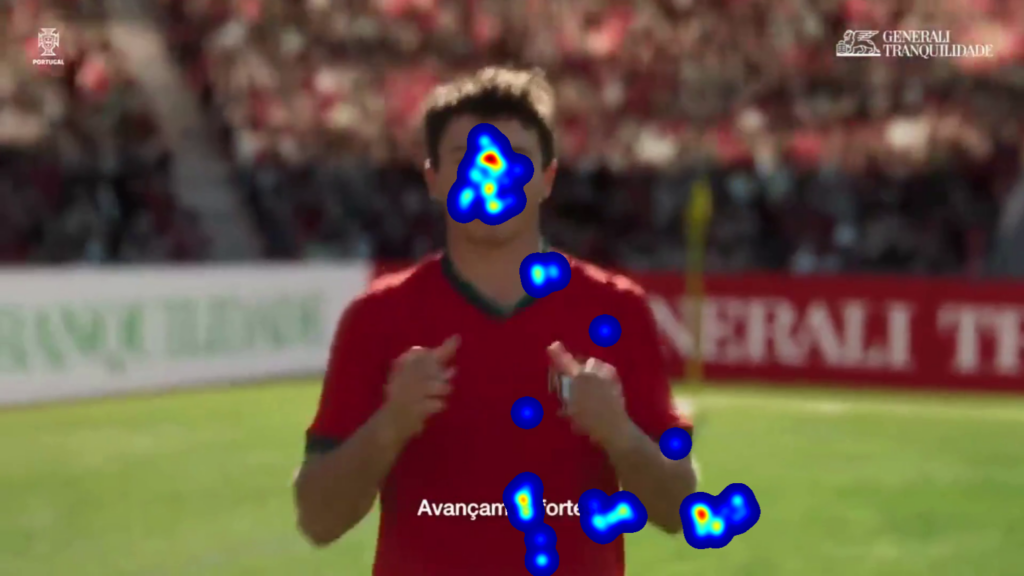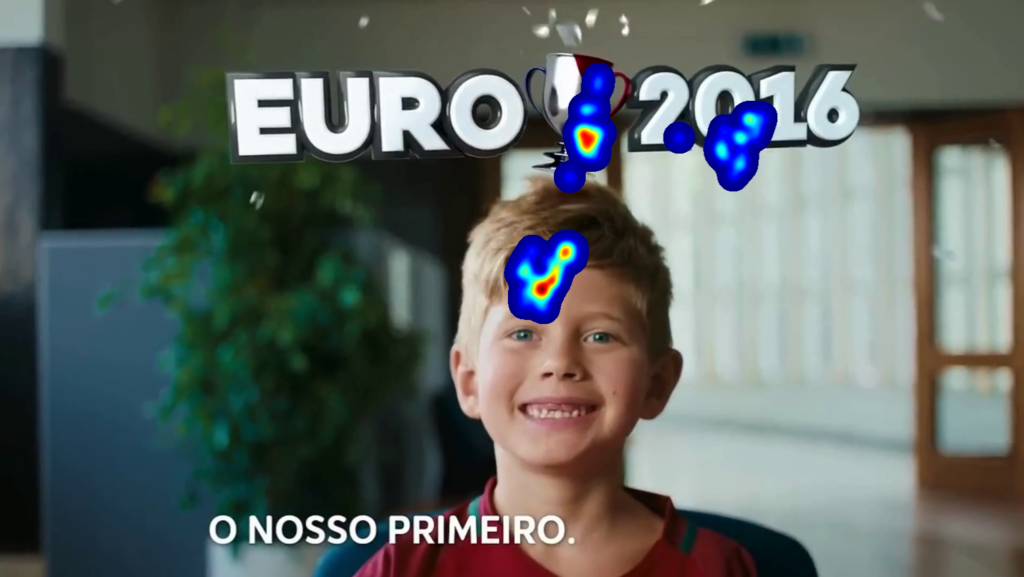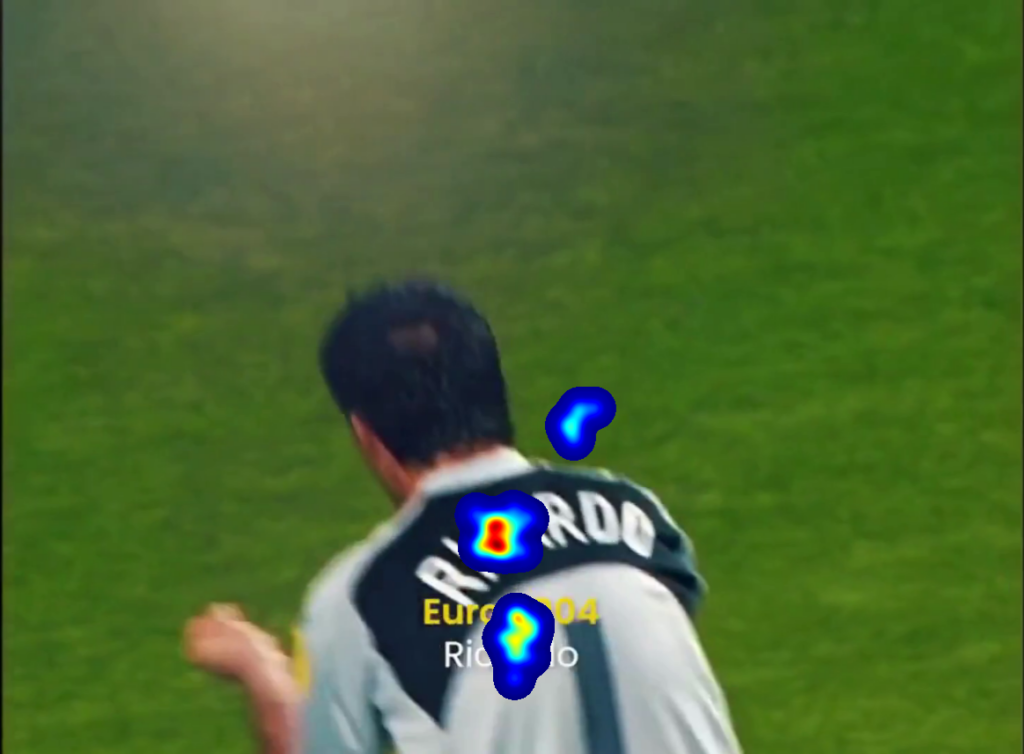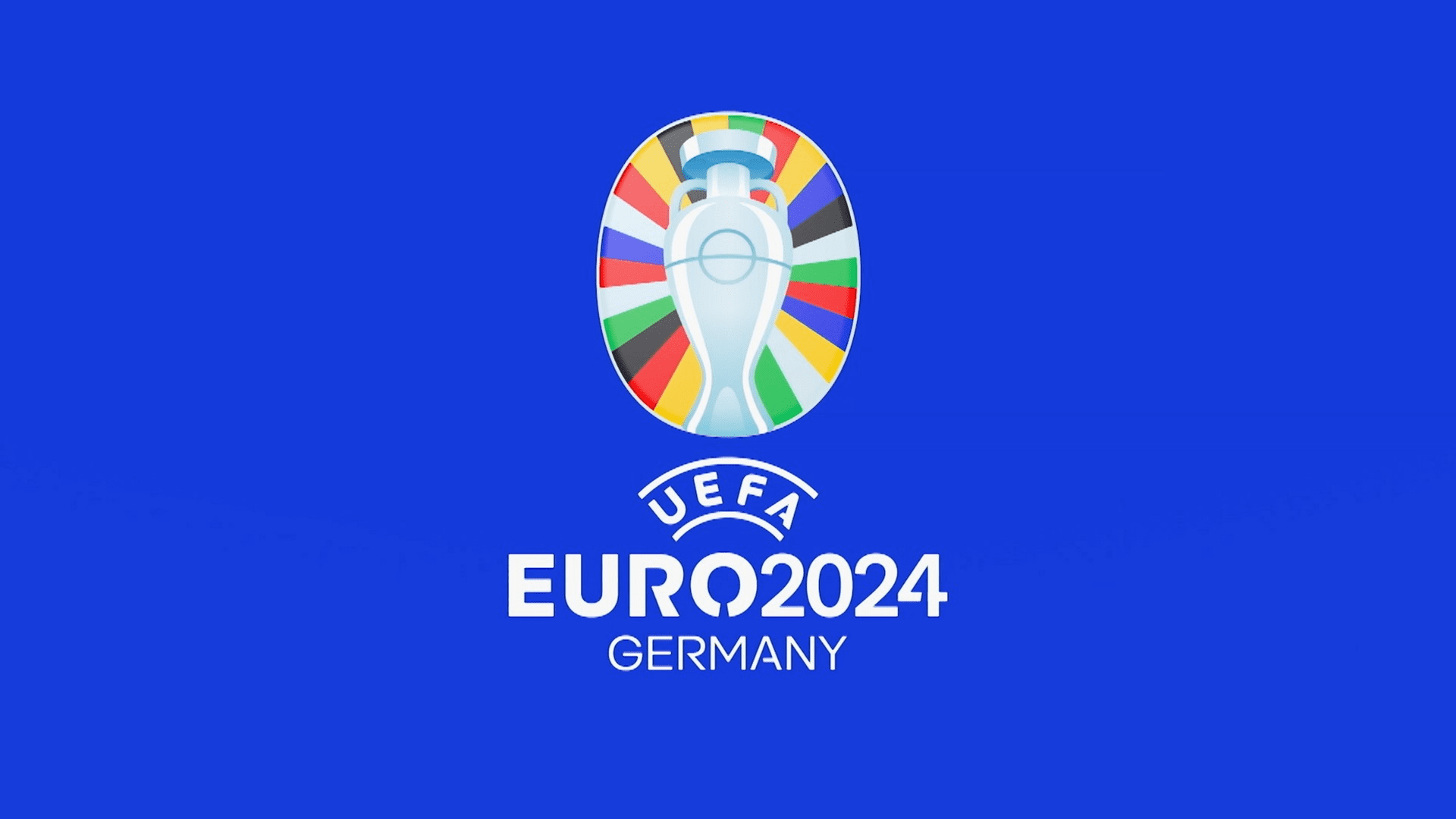WYperformance conducted a neuroscientific study over the past two weeks, testing three advertisements related to the UEFA European Championship 2024 and the Portuguese national team. The objective was to identify which ads generate the greatest emotional impact and engagement, resonating most effectively with Portuguese consumers.
The brands analyzed were:
- Generali Tranquilidade with the ad “Avançamos fortes- pequenos gestos fazem a diferença”
- Meo with “Filhos do Euro”
- Sport TV with “Todo o EURO 2024 só na Sport TV”.
Surveys revealed that 90% of participants enjoy watching football, with 71% liking to watch games regardless of the championship or club affiliation, and 18% preferring only national team matches. Additionally, 40% of respondents indicated being up-to-date with all news related to the European Championship, demonstrating that the sample is knowledgeable and interested in the topic, thereby validating the significance of the findings.
Generali Tranquilidade
In the case of Generali Tranquilidade, there was a gradual increase in participants’ heart rate and skin conductance response
(GSR), as well as pupil dilation, particularly when they recognized the player João Neves. This suggests a strong emotional engagement.
This engagement peaked at the moment of the goal, demonstrating the advertisement’s ability to capture attention and resonate emotionally with the audience. Interestingly, although both the brand’s logo and the Portuguese Football Federation’s logo were present throughout the ad, 85% of participants only noticed the brand logo at the end, indicating that attention was predominantly focused on the visual narrative.
This advertisement received the most mentions in the post-test questionnaire, standing out compared to the others in terms of memorability, closely tied to participants’ emotional involvement as evidenced by the consistent increase in skin conductance response and heart rate, reaching its peak at the key moment.

Interest Level:

Attention:

Memorization:

Emotional Engagement:

Meo
On the other hand, the Meo advertisement received negative evaluations from participants, which was reflected in the neuroscientific data. None of the participants noticed the initial message presented, “Portugal has one of the lowest birth rates in Europe,” and emotional engagement was low, except when “Gui,” the baby from “Euro 2016,” appeared in the video. This moment elicited a peak in sentiment but was insufficient to improve the overall evaluation of the ad.
Participants also noted that the content of the ad was not related to football, likely because they did not associate it with previous ads from the brand.
However, when evaluating this ad in isolation, there was no understanding regarding the association between sports and the brand.
Regarding memorization, this ad was the second most mentioned by participants. This is attributed to its use of an empathetic and strong theme in people’s lives, such as pregnancy, which creates and reserves a space in people’s memories.
Nevertheless, considering all other data including self-reports, skin conductance response, and heart rate, we believe that the specific goal of this ad was not achieved successfully, as it did not show any significant results in the biometric parameters.

Interest Level:

Attention:

Memorization:

Emotional Engagement:

Sport TV
The Sport TV advertisement had a significant impact on an older population, possibly due to the historical moments presented. The peak of emotion was recorded during the defense, goal, and celebration of goalkeeper Ricardo in 2004, particularly this part.
Additionally, the goal by Éder in 2016 and the final image of Cristiano Ronaldo in tears demonstrated emotional relevance across the sample.
All these moments generated deep emotional engagement, showcasing the advertisement’s effectiveness in evoking positive memories and strengthening emotional connection with the brand. Similar to the first ad discussed, there was positive self-reporting, and key moments showed increased heart rate and skin conductance response, indicating emotional involvement of participants.
However, the memorization level was lower, possibly due to a lack of empathetic narrative with the viewers.
The advertisement portrayed only historical moments, lacking the “human” element that proved effective in the other ads.

Interest Level:

Attention:

Memorization:

Emotional Engagement:

The clarity of all advertisements was positively evaluated by 95% of participants, with 75% stating they are aligned with the brands’ image.
The study clearly revealed the importance of neuromarketing in creating effective ads that captivate, memorize, and familiarize brands with consumers. By combining qualitative, quantitative, and neuroscientific analyses, it is possible to deeply understand how different elements of ads influence the audience’s perception and emotional engagement. This approach allows entities not only to capture viewers’ attention but also to create lasting and memorable emotional connections. The use of neuromarketing will be crucial to ensure that ads not only stand out but also truly resonate in Portuguese households.
*The study took place on June 4th and 5th, 2024, selecting ads published to date, with a heterogeneous sample of 20 people, 50% male and 50% female, aged between 20 and 51. To provide a direct comparison, ad evaluation results were analyzed on a scale of 0 to 5 based on neuroscientific data collection (GSR, Self-report, Eye-tracker), quantitative, and qualitative methods.
Text written by Benedita Santos, Neuromarketer & Consumer Behavior Specialist at WYperformance. Originally published in Marketeer.
